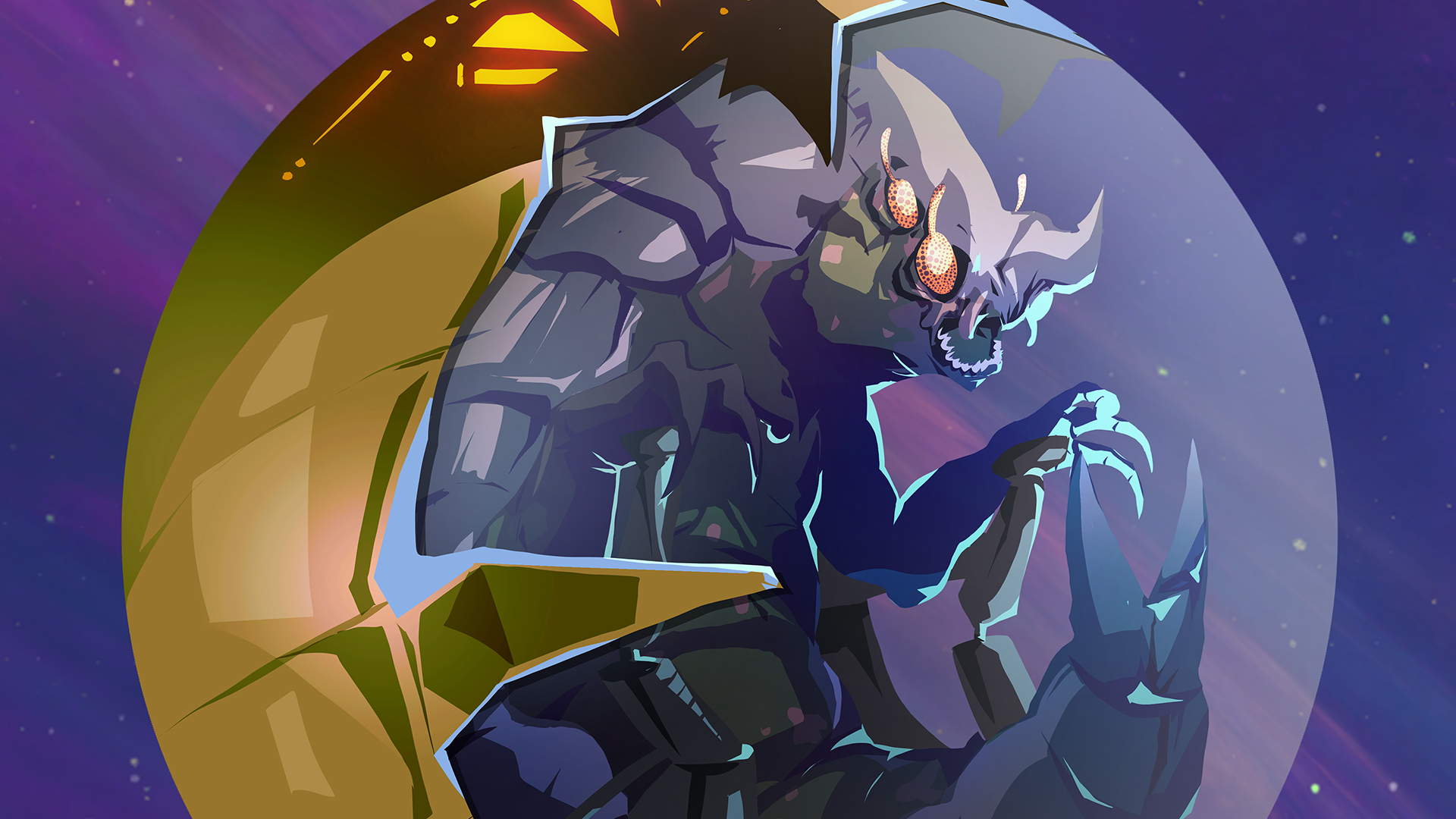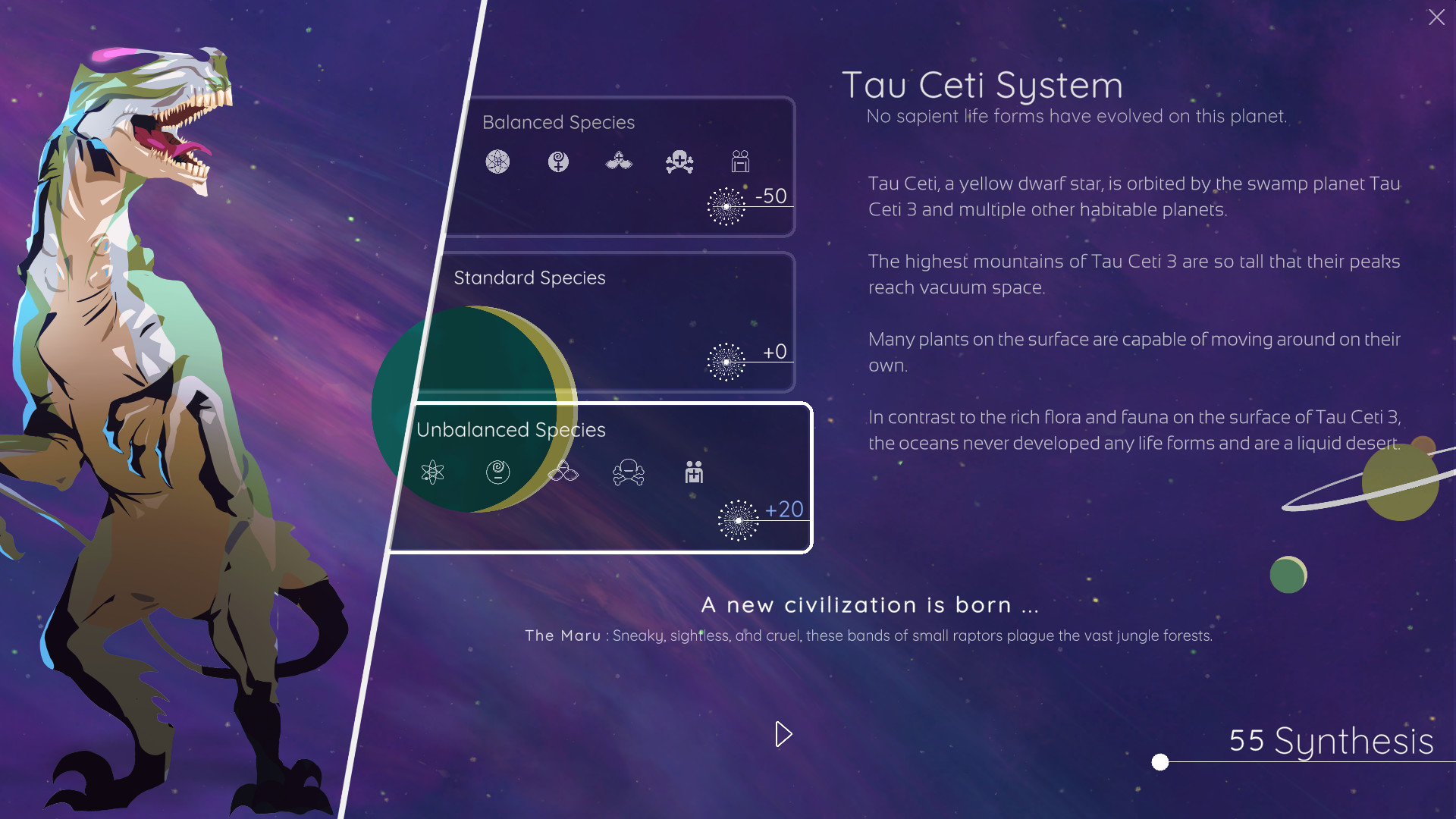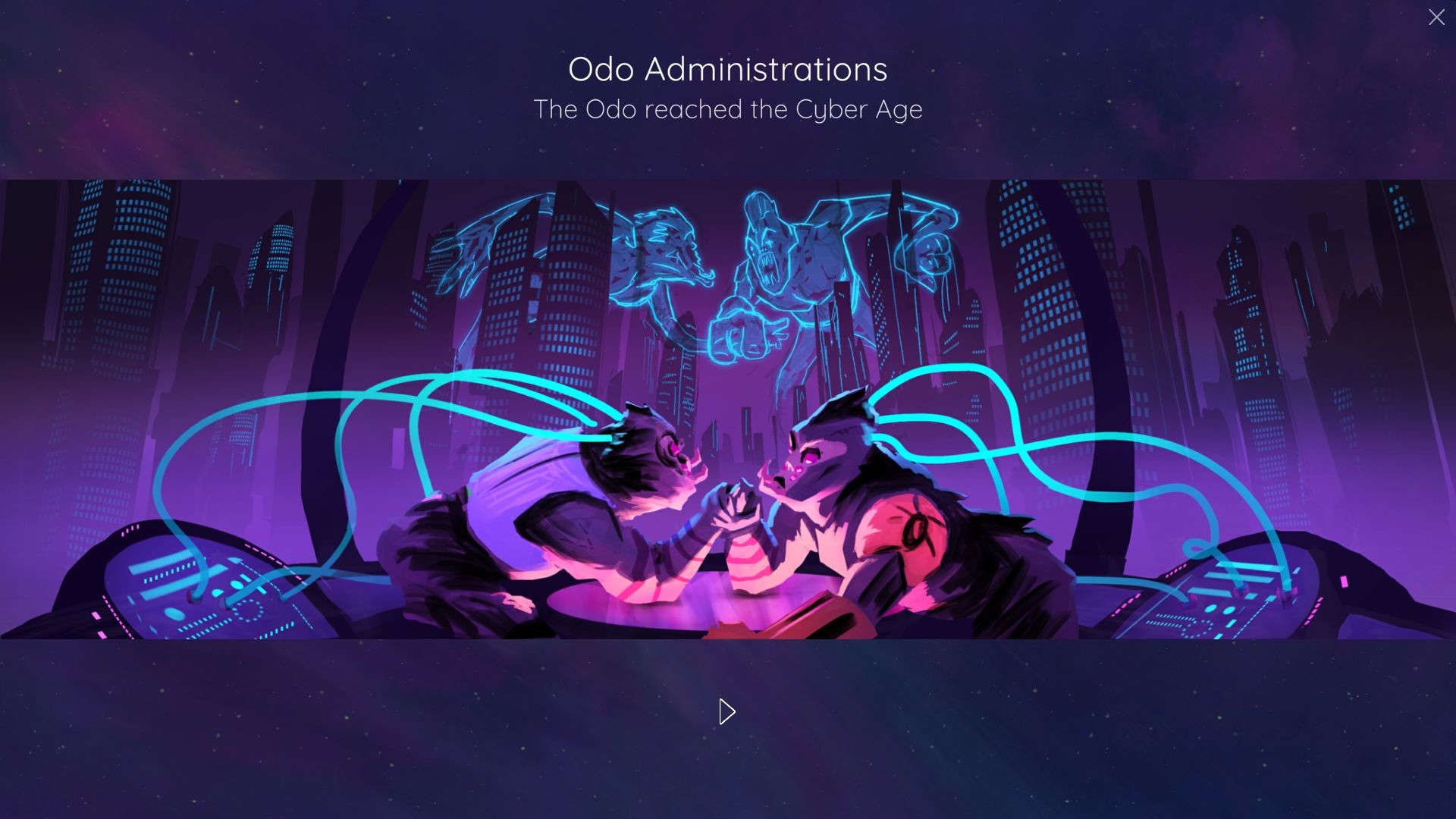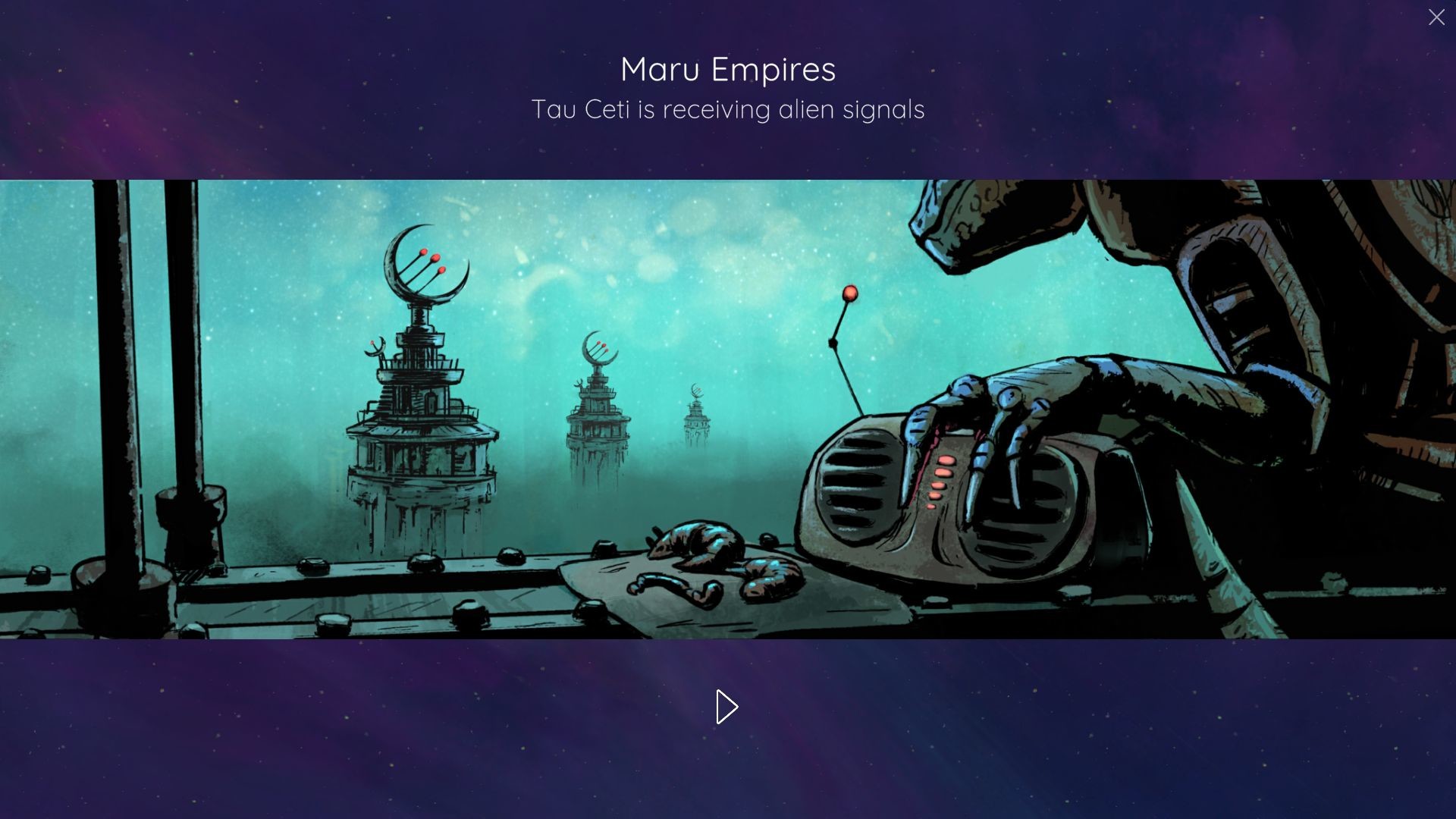Play matchmaker with an entire galaxy of weird aliens in this sci-fi strategy game
Choices can have galactic consequences in The Fermi Paradox.

In the 1950s, physicist Enrico Fermi asked an important question: "Space is absolutely massive, so where the heck are all the aliens?" Okay, he didn't word it exactly like that, but he raised a valid (and scary) point. If there are so many stars, and so many potentially Earth-like worlds, in the universe, why haven't we found any evidence of intelligent, spacefaring civilizations other than our own? The people at SETI have been listening to the stars for decades now and haven't heard a peep. This is the famous Fermi paradox, and it's where this new choice-driven narrative game—released today in Early Access—gets its name.
But the cool thing about The Fermi Paradox is that you can prove Fermi wrong. It's a turn-based narrative-strategy game on a galactic scale where you, as some unexplained, deity-like galactic gardener, guide various species—including some angry, weird-looking apes called humans—from their first primitive flickers of intelligence, smearing paint on cave walls, to building starships and exploring the depths of the cosmos. These species might never meet, living in complete ignorance of each other for as long as they exist. But if you make certain decisions in the game's dynamic, interactive narrative, they could reach out to each other across the stars—and maybe even make contact.

Best case scenario, the two species form a close relationship, share technology and knowledge, and exist in harmony together. That can happen. But this game is pretty brutal when it comes to things going wrong. It's just as likely that these civilizations will clash in an intergalactic war that devastates both species. I'm giving abstract examples here, but these are the kinds of stories that emerge when you play The Fermi Paradox. It's a compelling narrative sandbox that makes controlling the fates of multiple intelligent species manageable—by giving you lean, impactful choices to make, and presenting it all with a clean, snappy UI.
Decisions are made by simply clicking on blocks of text, similar to selecting dialogue choices in an RPG. Some are mysterious, marked with a question mark. Others will tell you what kind of impact they'll have on your civilization, whether that's triggering a food shortage or increasing your population. The Fermi Paradox lets you make 'bad' decisions, and never judges you for it. You might want a civilization to fail, because that's the story you want to create, and the game supports it. This is one of the most interesting quirks of its approach to interactive narrative, allowing you to seriously screw things up without suddenly ending the game. When one species dies, another will always rise in its place.
You might want a civilization to fail, because that's the story you want to create, and the game supports it.
When a species becomes sapient, developing language and mastering the use of tools, your command over their fate begins. You control their burgeoning civilization from its earliest stages, making decisions that can ripple through generations—if they make it that far. It's entirely possible for a civilization to collapse before it even ponders the idea of space travel. As time passes in the universe, you gather a resource called synthesis that can be spent on making decisions at important points in a species' evolution. Mostly, the more dramatic and far-reaching a choice, the more synthesis it'll cost. And some decisions, once made, will give you more synthesis, while others will take it away.
The whole synthesis thing feels slightly arbitrary, but it's key to absolutely everything you do in the game. If a civilization is on the verge of extinction because it's ignoring a climate crisis (hey, that sounds familiar), you might be given an opportunity to make them see sense and work together to reverse it. But if you don't have enough synthesis banked to choose that option, you'll be forced to take another path, which might spell their doom. Your synthesis pool is shared between species too, which puts you in some difficult positions. Do you spend synthesis to save one species, even if it means sacrificing another?

I get a sense of how choices in the game can have lasting consequences, and how distant species can impact each other, in an early demo provided by developer Anomaly Games. A planet called Earth, an unremarkable little backwater populated by creatures who walk around staring at small glowing rectangles all day, is in a bad place. Overpopulation, political unrest, and a seriously broken environment are just a few of the problems they're struggling to deal with. Meanwhile, another race, the prun, have developed interstellar travel. I send them on a mission to Earth to check the place out.
Keep up to date with the most important stories and the best deals, as picked by the PC Gamer team.
Sending two civilizations on a collision course like this is something that will always happen late in the game in The Fermi Paradox—and how it all plays out will be determined by the random story events that are constantly popping up as you play. In this instance, the people of Earth fail to protect their environment. The sea levels rise and drown the cities, and in a few generations humans are totally wiped out. If I had more synthesis I might have been able to save them from themselves, but I spent it all helping the prun develop space travel. Sorry about that. This is apocalyptically bad news for the human race, but for the prun it's a golden opportunity to make a new start.

They arrive on Earth and settle, building a lucrative mining colony that will eventually develop into a civilization of its own—if they don't screw things up too. One species' loss is another's gain. As far as I can tell, this story emerged completely randomly through the decisions I made. If that's the case, The Fermi Paradox has the potential to be an incredibly powerful sci-fi story generator. And I can't wait to reach this point again to see the other ways species can interact. If the humans were still alive, would a war break out? Or would they have been best buds with the prun? Knowing humans, probably the former.
If it’s set in space, Andy will probably write about it. He loves sci-fi, adventure games, taking screenshots, Twin Peaks, weird sims, Alien: Isolation, and anything with a good story.


